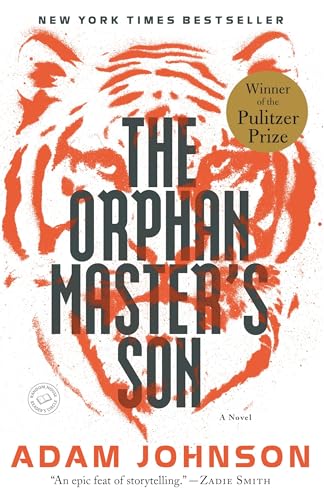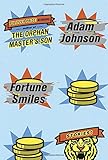
When he set out write The Orphan Master’s Son, his 2012 novel set in modern North Korea, Adam Johnson faced a seemingly insurmountable problem: Very little is known in the West about daily life in modern North Korea. The government of the ruling Kim family pumps out a constant stream of propaganda, but nobody believes a word the country’s official news agencies say. More accurate information comes from defectors, but residents of the capital city of Pyongyang, where much of The Orphan Master’s Son is set, rarely defect. Even when Johnson wangled a rare visit to the country, his government minders never let him out of their sight and ordinary citizens wouldn’t risk looking at him on the street, lest they arouse the suspicions of the country’s brutal secret police.
Johnson’s solution was to write The Orphan Master’s Son as speculative fiction, mixing the facts he was able to gather with his own fertile imagination to create a fictive world he calls, for the sake of convenience, North Korea. Just as is the case with most speculative fiction, many of the underlying facts of this fictive world, such as North Korea’s vast system of gulags and the government’s bizarre ban on owning dogs in the capital city, are real. But many other details, such as a gruesome program to drain the blood of dying prisoners to provide fresh blood for healthy citizens elsewhere, serve as literary metaphors for life under totalitarian rule.
 After Johnson’s surprise win of the National Book Award last week, many readers will be rushing out to buy the winning book, Johnson’s 2015 story collection, Fortune Smiles. But readers new to Johnson’s work may also want to make room on their Christmas wish lists for The Orphan Master’s Son, a brilliant, compulsively readable novel that blends the fine-grained emotional texture of literary fiction with the big ideas and world-building pleasures of the best speculative fiction.
After Johnson’s surprise win of the National Book Award last week, many readers will be rushing out to buy the winning book, Johnson’s 2015 story collection, Fortune Smiles. But readers new to Johnson’s work may also want to make room on their Christmas wish lists for The Orphan Master’s Son, a brilliant, compulsively readable novel that blends the fine-grained emotional texture of literary fiction with the big ideas and world-building pleasures of the best speculative fiction.
At the heart of The Orphan Master’s Son, which won the 2013 Pulitzer Prize, is Jun Do (“John Doe”), a young North Korean raised in a work camp for orphans. In the first section of the novel, which reads like a dystopian thriller, Jun Do joins a secret government unit tasked with kidnapping valuable foreigners and bringing them to North Korea. When he succeeds at that, he is sent to language school to learn English and assigned first to work as a spy stationed on a fishing vessel and then as a translator on a diplomatic visit to a senator in Texas.
The antic disaster of Jun Do’s sojourn in the American heartland sets the stage for the novel’s far more ambitious and strange second half, a cockeyed love story told in standard third-person narration, intercut with a heartbreaking first-person tale of a gung ho government interrogator, and the creepily chirpy voice of the government’s propaganda office piped via loudspeaker into every household in the country.
For much of this section, Jun Do is either under interrogation by the state’s secret police or an inmate in a barbaric prison mine, but Johnson leavens the bleakness of his hero’s daily existence with breathtaking narrative leaps and deftly understated dashes of barbed humor. In one of the chapters narrated by the propaganda office, the voice reminds its listeners that the loudspeakers serve as a vital early warning system in the nation’s still-simmering war with its American-backed southern neighbor:
“The Inuit people are a tribe of isolated savages that live near the North Pole,” the voice explains.
Their boots are called mukluk. Ask your neighbor later today, what is a mukluk? If he does not know, perhaps there is a malfunction with his loudspeaker, or perhaps it has for some reason become accidentally disconnected. By reporting this, you could be saving his life the next time the Americans sneak-attack our great nation.
When you stop laughing, you realize this is precisely the sound of a police state quietly, gingerly tightening its ideological stranglehold on its population.
In a recent New York Times article, Alexandra Alter noted that, with his Pulitzer and National Book Award wins on successive books, Johnson joins an elite literary club of consecutive prizewinners that includes the likes of Philip Roth, Saul Bellow, Wallace Stegner, and Eudora Welty. Of these four, only Roth is still alive and he is now retired. Johnson, on the other hand, is 48 years old, with just four books behind him. If there is a more promising writer at work in the U.S. today, it would be hard to name him.









